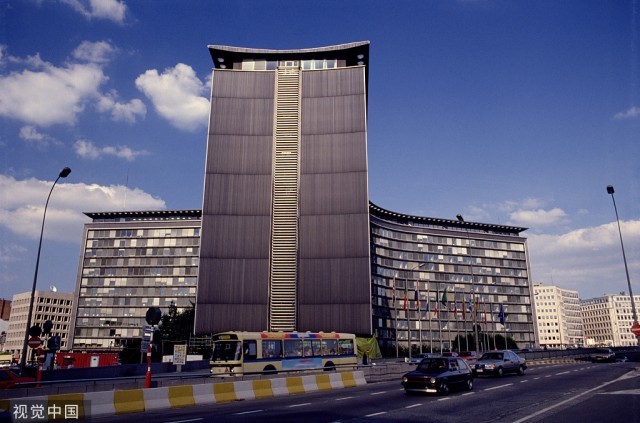"India's pursuit of becoming a global country, or discarding the" backyard 'interests "
Author:Reference News Time:2022.09.06

Hong Kong's "South China Morning Post" website published an article entitled "India's Seeking Become a Global Power, which may weaken its forces in the backyard Indian Ocean". Sakab. The article states that in the process of excessive expansion of forces and pursuing becoming the main role of the world, India may abandon its interests in the so -called "backyard" and endanger its strategic focus. The full text is as follows:
Indian Foreign Minister Su Jiesheng wrote in the book "Indian: The Strategy of the turbulent world": India's great strategy should be "the national interests brought by the opportunities brought by global contradictions, (promoted)", and "through as much as possible Multi -relationships will maximize the benefits.
With this purpose, India is expanding its international political forces and striving for the development of relations with the great powers. However, this may conflict with its regional interests and its own strategy.
In the early days of independence, Prime Minister Javahara Nahru was firmly ensured that India was in the competition in large powers. He is an advocate who does not form an alliance, and the principle of not the alliance campaign was reached at the Bandung Conference in 1955.
Indeed, India maintains an alliance during the Cold War; after the Cold War ended, it turned to strategic autonomy. By avoiding strategic risks and developing relations with the development of great powers, it strives to ensure that regional strength compares to its own advantages.
For example, by developing strategic partnerships with the United States and joining the Quartet's security dialogue, India has created the role of the Pacific region for itself. It recently added the US -Indian mechanism (I2U2), a multilateral partnership focusing on the Middle East. At the same time, India hopes to maintain a solid relationship with Iran and Saudi Arabia.
In addition, India is also a member of the Shanghai Cooperation Organization and BRICS countries -both institutions include China and Russia. New Delhi has a long history of close relationships and Moscow, which can be traced back to the Cold War.
As a result, India has upgraded its relationship with all big powers in the global arena. However, these relations are conducive to India's national interests, especially the interests of the Indian Ocean?
The Indian Ocean is one of the important channels for trade, commerce and energy. The throat in this area (including the Malacca Strait, the Holmus Strait, and the Mande Strait) has naval channels and influence, which is beneficial.
India regards this area as its sphere of influence and knows its advantages in controlling this area. As scholar Donald Berlin said, New Delhi "regards the Indian Ocean as its backyard and believes that India eventually becomes leaders and leaders in this region, which is logical and worth having."
Indian Prime Minister Narendra Modi announced that the Indian Ocean was "the top priority of my country's policy" and also expressed its general thoughts.
India is eager to become regional overlords, and is regarded as the ultimate regional security provider. Just as the United States as a regional hegemo is not allowed to allow partners or opponents to try to perform influence in the Western Hemisphere, India also believes that it should have the highest authoritative position in the Indian Ocean region.
However, some great powers -whether it is a strategic partner or a competitor -deploying naval power here has weakened India's position in this region.
The AUKUS (AUKUS) constitutes a challenge. India does not welcome another character to deploy nuclear -powered submarines in the East India area. Last year, New Delhi opposed the United States' "freedom of navigation" in its exclusive economic zone. As an important partner of the French country Madagascar and Kormoro, France also has benefits in the region.
Russia's interest in the Indian Ocean is getting stronger and worthy of attention. In 2020, Moscow announced the establishment of a naval logistics center plan in Sudan. Last year, Russia participated in two international naval exercises in the Indian Ocean: once with Iran, and the other was a multilateral exercise led by Pakistan.
Saudi Arabia, Iran, and Pakistan are also seeking forces to expand in the region.
Several countries' military deployment in the Indian Ocean region constitutes an obstacle to India's strategic goals, and the continuous enhanced influence of New Delhi's partners has also given competitors an excuse to strengthen its military deployment.
In fact, the military deployment of Indian partners runs counter to India's ambitions. When India is not the only big country in this region, it cannot play the role of security providers. Not only is the status weakened, but its ability is also a problem.
In the process of excessive expansion of forces and pursuit of becoming the main role of the world, India may abandon its interests in the so -called "backyard" and endanger its strategic focus.
(For more international news, see the digital report of "Reference News", which can be subscribed)
Supervision | Sun Yande
Review | Dong Lei
Edit | Guo Qingna
Click the picture below to buy the digital version of "Reference Message"
- END -
[Circle depth] Brussels, from the "European capital" to "NATO home"?

[Global Times Special Reporter Ren Yan Global Times reporter Wu Yun] Welcome to Br...
Japan has added new crowns in the world for 7 consecutive weeks to the world the most worldwide
Xinhua News Agency, Tokyo, September 8th (Reporter Huayi) According to data released by the World Health Organization on the 8th, Japan has added new crowned cases in the world for 7 consecutive weeks